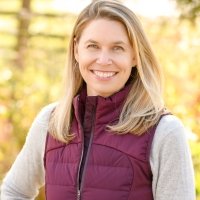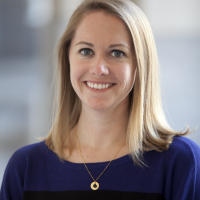Environment of Peace — Security in a New Era of Risk (U.S. Report Launch)
Submit a question
The world is entering a new era of risk as acute environmental crises are compounded by a darkening security horizon. Climate change, biodiversity loss, pollution, and resource scarcity are already impacting every part of the globe. At the same time, insecurity is on the rise, with a breakdown of arms control regimes, a doubling of conflict-related deaths in the last ten years, and now the war in Ukraine. A new flagship report from the Stockholm International Peace Research Institute, the Environment of Peace report—explores how we can secure peace.
This June 29 event drew from the report to explore how environmental degradation and climate change are increasing risks to peace and security and how, conversely, environmental policies—if not designed well—can unintentionally create or exacerbate conflict, injustice, and inequality (or what the Wilson Center has called “Backdraft”). The session highlighted recommendations for developing policies that can address this environment-security link, simultaneously promoting peace and protecting the environment to achieve a just and peaceful green transition.
Continue the conversation on Twitter @NewSecurityBeat. Find related coverage of these issues on our blog, NewSecurityBeat.org.
Selected Quotes
Lauren Risi
“There is an important story to be told in the arc of focus at SIPRI, from an initial focus on armaments and arms control to an expansion into the robust portfolio the Institute has today on environment, climate, development, peace, and security.”
Geoffrey Dabelko
“This report benefits from the fact that we also engaged throughout the process a youth panel that raised issues that called us to account in ways that broadened the perspectives, deepened our understanding of what was going on on the ground, and it’s a better report for that engagement.”
“Because [the military] is a big consumer and purchaser…it can have a big purchasing power, and gives truth to the notion that renewables and small grids provide less vulnerability, greater flexibility, greater resilience…and builds logic in the base for making those investments."
“The toolbox is much bigger if we can break down what is defined as a climate intervention or climate response, and have a broader sense that that is an appropriate expenditure.”
Claire McAllister
“We need this transition, we need it urgently. But we need to do it with our eyes open, and understand that there are risks, and that we need to ensure that this is not only a just transition, but also a peaceful transition.”
“Deliberately involving those people that will be affected from the start—I think this is not just a moral imperative. It is efficient and effective, because you are going to avoid some of the backlash and some of the opposition which we see in the report.”
“In order to join up across the security and environmental sectors, that’s not a small pocket here, it’s not a pilot project, it’s not one climate security advisor that sits in your government that can cover all of these issues. It’s actually about trying to have a more sustained and mainstream attempt trying to integrate environmental risks into security policy, and conflict risk into environmental policy.”
Florian Krampe
“We are entering, as the report argues, a new era of risks.… Something has fundamentally changed. The security landscape has transformed.”
“We are facing another crisis, which is a governance deficit.… World leaders are failing to prepare and plan for the future.”
“While we are failing to reach communities on the ground that are experiencing environmental and climate hardship and conflict and social pressures every day, we are financing risks. We are not financing peace; we are continuing to subsidize fossil fuels.”
“Give people in the fields the flexibility and the ability to use their creativity, innovativeness, and brain, because…they know what is going on…. Those are the experts; they need the flexibility.”
Stephanie Epner
“The muscle memory of the national security apparatus is not there at this point. It is being built, and we’re really trying to make sure that at every level…these considerations, the climate-related security risks, are folded into that.”
“The real fact is that understanding the climate risk is going to be central to NATO’s mission of protecting allies.”
“In the end, the goal is crystal clear…which is building a more secure world, both in terms of climate change, in terms of energy, and in terms of peace-sharing…. The leaders around the world are pretty clear-eyed about the need to do all of this at the same time, even if we get pulled at different directions day-to-day—keeping that as our north star.”
Cynthia Brady
“That idea of these two really massive phenomena being inextricably interlinked helps us have from the outset a little humility about the magnitude of the challenges we’re really facing, but it also encourages us to have a little optimism that within that huge system, there are entry points.”
“One of the biggest mistakes we can make is to only focus on the risks, not the opportunities.”
“Institutions matter, a lot. Where institutions are strong and adaptable and responsive, all kinds of stresses and shocks can be managed.”
“War and peace are very complicated business, and so is the sustainable natural world…. That complexity is really especially hard for institutions and rigid organizational structures to manage, so there is a tendency to try to simplify, and sometimes that means we miss the big picture, or even that we misdiagnose the problem.”
Speakers


Former Peacebuilding and Resilience Advisor (2018-2019) & Senior Peacebuilding and Conflict Advisor (2005-2018) U.S. Agency for International Development (USAID)
Introduction

Professor and Associate Dean, George V. Voinovich School of Leadership and Public Affairs, Ohio University; Associate Senior Fellow, Environment of Peace Initiative, Stockholm International Peace Research Institute
Moderator

Hosted By

Environmental Change and Security Program
The Environmental Change and Security Program (ECSP) explores the connections between environmental change, health, and population dynamics and their links to conflict, human insecurity, and foreign policy. Read more

